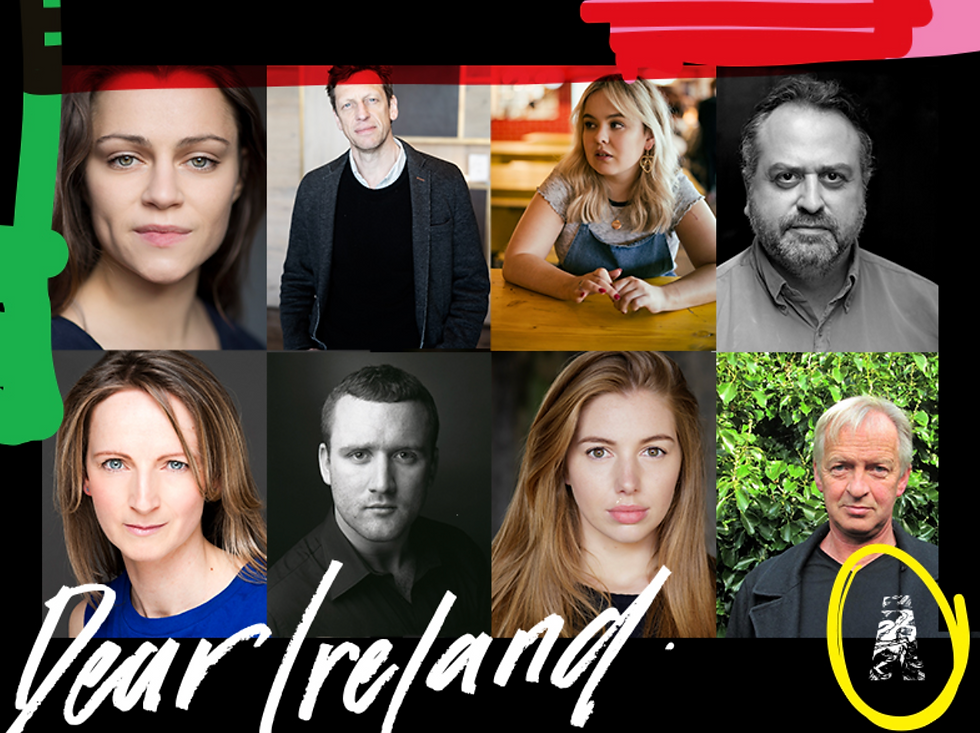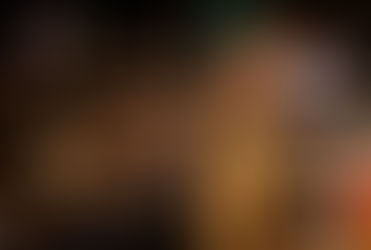Dear Ireland: Part Two
- Chris O'Rourke
- Apr 30, 2020
- 5 min read
Updated: May 4, 2020

Dear Ireland presented by The Abbey Theatre. Image uncredited.
While Dear Ireland: Part One showed immense promise, Dear Ireland: Part Two highlights many of the pitfalls of the monologue format. Once again, meandering meditations, many centred on communicating digitally, dominate, with Covid-19 serving as the contextual background. As an opportunity to imagine, or re-imagine, theatrical possibilities and boldly go where few have gone before, Dear Ireland produces a wide array of results. With some artists rising to the challenge, some struggling, and some notable figures showing a surprising lack of inventiveness.
Not least of which is Edna O’Brien’s disappointing and drawling Dear Ireland. Featuring Stanley Townsend reading a letter from O’Brien; she advises everyone to immerse themselves in one book during lockdown. Except it’s really one writer rather than one book as Townsend trots out a Wikipedia walkthrough of W.B. Yeats. Even so, the icon has her moment, reminding us that great literature is more beneficial than all the self help books ever written. Starting strong and finishing weak, renowned Italian composer Andrea Molino’s torturously tautological I Want The Things finds American composer, David Moss, delivering a found-sound performance with an array of everyday objects. Resembling the worst Ireland’s Got Talent audition ever, lyrics are used to recycle worn-out theories: words are symbols, not things, and are often ineffective. If Wittgenstein would have been flattered, everyone else might find the experience a one trick pony. Akin to being strapped into a chair in a Columbian back alley while a dentist drills threatens. It might channel Evan Parker on a bad LSD trip and momentarily appear interesting, referencing post dramatic theatre and musical experimentation, but it soon becomes clear not everything beyond words is worth listening to. No matter how charming or playful they try to be.
Thankfully, several lights do glimmer and glow with varying intensity, with many expressing well intentioned meditations. Wiper at Work by Abbie Spallen, sees Jolene O’Hara meditating on the Northern Irish context in which Covid-19 serves as a distraction from Brexit. Which gets her wondering about the respect due to frontline workers, and wondering why seventy percent of deaths from Covid-19 are men? All set against an undercurrent of domestic violence hovering in the background as the wheels turn but go nowhere. Similarly Shaun Dunne’s well-intentioned The Box Room (A Meditation on Work). Here an engaging Eva-Jane Gaffney serves up meditations on her box room from her box room, with very little actual meditations on work. Remove the mantra ‘box room’ from the script, which Dunne clings to like a life raft, and you could probably reduce the whole by a third and not feel the loss. Indeed, its self congratulatory, self awareness of its own privilege is something it could loose as O’Hara suffers valiantly through her first world privilege.
Manchán Magan’s Poll Mór/Big Hole, serves as a healthy reminder that Dear Ireland attempts to speak to a diverse audience: young and old, rural and urban, Irish and non-Irish speaking. Performed by Bríd Criomhthain, Poll Mór/Big Hole offers a short, Irish language meditation with enough English for anyone to catch on to. Bilingualism features again in the taut and hard hitting It’s All The Same by Zoe Ní Riordáin as a bilingual Seána Kerslake evokes a homeless woman with mental health issues, reminding you she’s still there. And in trouble. The legacy of Larkin and Parnell looking diminished in light of the nation’s failure to care for its uncared for. If Ní Riordáin’s song structured piece doesn’t pull its punches, it doesn’t spark sympathy either. But Ní Riordáin sees care as a right not a privilege, with Kerslake’s singing reiterating the central themes that ring out like a problem absent a solution.
Shifting from meditations to character studies, a charmingly comic Maxwell House, by Eva O’Connor, sees the wonderfully disjointed Amy McAllister struggling with a one eyed cat and her hipster roommate, Emily, as self-isolation kicks in. Exploring the magnetic push and pull of relationships, love is blind as it struggles along the thin line between love and stalking. Night 4, by Aoife Martyn, sees an impressive Norma Sheahan venting frontline burnout with a vicious tongue. Standing against a wall of toiler paper, her calm exterior conceals an angry interior, with her nursing advice sounding like a teacher training programme from the 1950s as pain and hope collide. Your Hands by John O’Donovan, sees Nicola Coughlan’s wedding cancelled courtesy of Covid-19. Which might not be a bad thing given it wasn’t her that wanted to get married in the first place. Cracks and strains appear as she puts on her make up. Discussing the difference between socialism and capitalism, and carrying on till we can’t in an apocalyptic slow walk towards the end, she wonders if life, like her wedding, is postponed or cancelled? A theme reiterated in Dear Alex, by Deirdre Kinahan, as Bríd Ní Neachtain’s widow fighting cancer becomes intrigued by a mysterious man taking his daily constitutional past her garden. Making her wonder is there's more to life than survival, and how many chances do we get to find out?
Communicating via digital media takes centre stage in Gorse, by Michael West, in which Mark O’Doherty colludes with our extinction as he participates in the nightmare of teaching via Zoom. Smart, funny, with O’Doherty’s oversharing teacher suffering world weary frustrations, West’s script is delivered with Grade A sarcasm by O'Doherty, slipping from sardonic lecture into heartfelt confessional, highlighting the strains of self isolating with a smart, heartfelt ending. The Other Side, by Arthur Riordan, finds Rory Nolan reflecting on a draft email he never sent, cleverly highlighting the early then and current now of the lockdown to ask some pertinent questions. Juxtaposing a ‘we’ll get through it’ message with ‘no we won’t,’ Nolan’s Jekyll and Hyde performance cleverly conveys the battle between hope and despair.
Now at its halfway mark, Dear Ireland shows an evident leaning towards text over medium, even allowing for the restrictions imposed by social distancing, the time bound nature of the project, and the relative inexperience with the medium of most involved. Suggesting some writers might need to think outside the box if they want to engage those looking at the box. Even so, there’s plenty of evidence to suggest there’s no reason why this can’t happen. Yet never as a replacement, or substitute, for life performance.
Dear Ireland, presented by The Abbey Theatre, will feature on their dedicated Youtube Channel, with Part Three airing on April 30, Part Four on May 1 at 7.30, featuring a new selection on monologues each night. All fifty can be viewed for six months from May 2.
For more information, visit The Abbey Theatre.





















